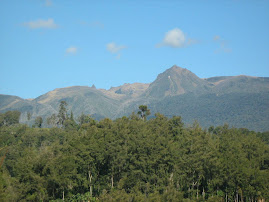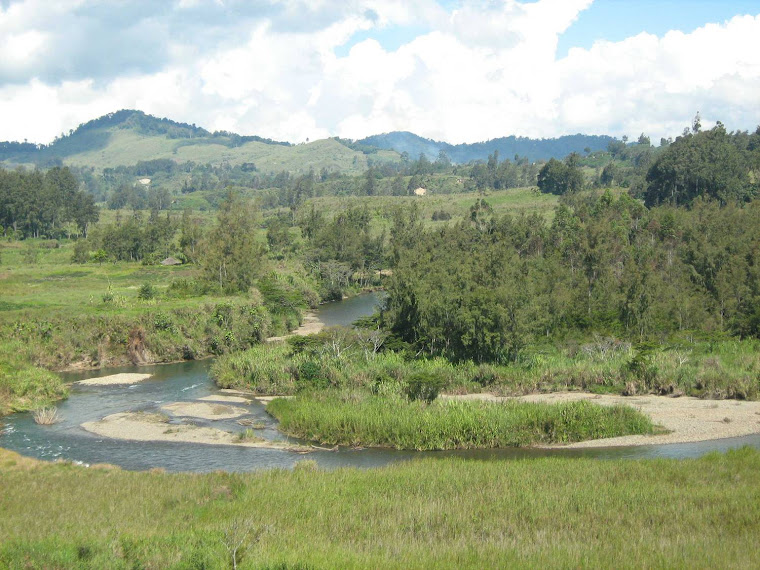> February 9, 2004 – PNG Prime Minister and Chinese Premier witnessed the signing of a framework agreement on the project by MCC, PNG government and partners.
> October 5, 2004 – Mallesons Stephen Jaques Law Firm was engaged to carry out due diligence investigations for Ramu project.
> March 30, 2005 – MCC and joint venture partners signed formal agreement for Ramu project at National Parliament House in Port Moresby.
> May 19, 2005 – Chen Jian, Assistant Minister for Commerce, met high-level delegation led by Minister for Petroleum and Energy Resources Moi Avei and Minister for Mining Sam Akoitai. The two sides had constructive discussions on strengthening economic cooperation, driving the Ramu project forward and encouraging Chinese investment in PNG.
> May 20, 2005 – MCC held technical symposium on laterite nickel and the Ramu nickel project. Companies related to the field made presentations on key technologies relevant to the Ramu laterite nickel project, including wet smelting, long-distance pipeline transportation and deep sea disposal of tailings.
> August 17, 2005 – MCC completed registration of local corporation for Ramu project in Port Moresby. Two entities are registered— MCC Ramu NiCo Limited and Ramu NiCo Management (MCC) Limited.
> September 15, 2005 – MCC formally notified partners in PNG and the PNG government that the project would commence on September 9, 2005, marking the start of the second phase of the agreement. This signifies MCC’s formal entry into the project, acquiring an 85% share, and starting the work of the Joint Venture as one of its members.
> September 20, 2005 – MCC and other parties of the Joint Venture formally signed the Ramu Joint Venture Agreement.
> October 14, 2005 – Joint Operations Body members arrived in PNG, and reached agreement with PNG government on favorable policies and key elements of mining contract. The two sides started to implement joint-venture agreement and transfer assets. This signified the formal handover of the Ramu project to MCC.
> April, 2006 – MCC signed project financing framework agreements with China Import-Export Bank and National Development Bank, marking a significant step forward for the financing efforts.
> August 14, 2006 – Ramu NiCo Management (MCC) Limited, on behalf of the Ramu Project Joint Operations Body, took part in the Ramu Project Stakeholders Forum, organised by the PNG Mining Ministry in Madang.
> September 21, 2006 – The EPC contract and third-party project supervision contact for the Ramu project were signed at ceremony held at Xiyuan Hotel, Beijing.
> October 14, 2006 – Governor General Sir Paulias N. Matane visited MCC Group, in anticipation of the start of construction.
> November 3, 2006 – Foundation laying ceremony for the Ramu Nickel Cobalt Project was held at the site of the smeltery in Basamuk, Madang Province.
According to its website, MCC, the investor in the Ramu NiCo Project is China’s leading multidisciplinary multinational company that is well known for its rewarding experience and strengths in scientific research, industrial engineering practice and international trading capabilities.
MCC is mainly engaged in EPC business (engineering, procurement and construction), natural resources exploitation, papermaking business, equipment fabrication, real estate development and provision of the related services.
MCC is a major driving force behind the growth of China’s steel industry, and a reputable contractor of a number of key projects both in China and abroad.
The company is a leading investor licensed by Chinese government in natural resources exploitation businesses.
MCC has to date invested as much as US$ 1 billion in mining resources abroad, and owns many production facilities and claims of resources including iron ores, copper, gold, nickel, cobalt, zinc, lead and aluminum, etc.
MCC is one of the largest equipment manufacturers in China, registering revenues of over RMB 18 billion in 2006.
It is also the only central enterprise that is authorized to run pulp-making and papermaking businesses in and outside of the country.
The company is a key property developer claiming an increasingly recognized brand - MCC Real Estate.
MCC owns total assets of RMB 83 billion and has over 50,000 technical and managerial talents.
The company stood No. 22 and 35 on the central enterprises list in 2006 respectively in terms of its total operating revenues and profitability.
Having said that, the scribe would like to bring in the role of State, which are major players in International Relations. But non-state actors have recently become major players in the arena too.
Non-governmental organizations like Green Peace and Transparency International, multinational companies like Coca Cola, International Organizations like United Nations and even individuals like Osama bin Laden can influence internal polities of individual countries, despite their military and economic strengths.
A new influential actor, “global terrorism” is now having lots of impact on world politics, even keeping US and her allies in Iraq and Afghanistan for a while.
While that is happening, China has been building network of countries in the African continent, South America and in Asia using its aid without conditionality’s and investing in natural resources.
Most of the Western media and scholars have criticized China on its aid and investment, claiming that Beijing’s diplomacy is worsening certain developing countries in Africa like Darfur.
Now, MCC Groups is genuinely investing in the million dollar Ramu project despite the negative publicities emanating from other China’s overseas investments.
But one fact remains. If the National Government in Waigani was unable to provide basic goods and services to the people of Wabo outpost in the Gulf Province then InterOil will provide in its LNG gas project.
Equally, the MCC Groups will bring economic opportunities to the people of remote Ramu area who may not have been able to experience tangible economic development from PNG governments since 1975.
For the benefit of PNG, MCC and the local people, this scribe appeals to all parties to comply with the laws to make this project a success.
The local people need the project to better their lives. Above all, Sino-PNG bilateral relationship will be further strengthened.
 The 8th RNJV Management Committee meeting held in Beijing recently. Pic by Ramu NiCo
The 8th RNJV Management Committee meeting held in Beijing recently. Pic by Ramu NiCo




















